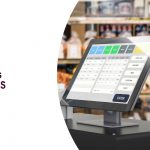How Experiential Marketing Gets Customers Excited About Your Retail Business
The retail landscape is always changing, and today’s customers don’t just want to buy products; they’re looking for memories. Product-focused retailers just need to shift their thinking and delivery to give customers those memories they desire. Retailers that want to take advantage of changing preferences can use experiential marketing to engage consumers, make connections, and boost sales.
What is Experiential Marketing?
As the name suggests, experiential marketing is a campaign that directly engages customers, inviting them to experience your brand live and in person. Instead of traditional marketing, which puts the consumer in the role of spectator, experiential marketing uses hands-on activities to create personal interactions. It includes everything from free classes to food and beverage tastings, pop-up shops and parties.
The Benefits of Experiential Marketing for Retailers
There’s a reason why companies are putting money into this form of marketing. When done right, experiential marketing can be powerful.
Experiential marketing also drives word-of-mouth marketing. Consumers often talk about the experience with friends. More importantly, they post on social media. Majority of consumers post pictures, and share videos of the events. The chatter helps create a buzz around your brand and the products you’re promoting at your event.
Also, offline events give companies a chance to get immediate customer data and feedback. Not only will you be able to observe how consumers interact with your products and services, but you can ask a live person questions to get insight on existing and future offerings. Events also give you a chance to collect customer information for traditional campaigns held after later, such as direct mail or email.
This engagement loop helps build a customer community as well. Offline events help retailers plug into the community where they do business and bring together customers who have similar interests.
How To Cash In With Experiential Marketing
If you haven’t done so already, it’s time to consider implementing the experiential marketing technique. No matter what type of business you own, you can likely create a campaign to connect and engage with consumers. The key is to create an activity that evokes a positive experience — one that customers will remember so it ultimately drives their business to you later. Here are 5 of the most common experiential marketing campaigns retailers undertake.
Classes
You can start small by hosting in-person events at your location. Perhaps teach customers how to use your products or a lifestyle-focused workshop on a skill relevant to your niche.
Pop-Up Shops
If you sell primarily online, consider hosting a pop-up shop or partner with a complementary business to hold an event at their store.
Community Events
Tie your product into an event. Become a sponsor, host a booth or offer samples of your products or services. You can also host your own event to attract potential customers.
Guerrilla Marketing Campaigns
Display your product in an over-the-top way to gain attention and boost brand awareness by using guerrilla marketing tactics. The sillier or more outrageous the idea, the better.
Tours
Take your business on the road by organizing a tour that stops in a variety of locations. Or be a destination of a tour.
More Tips
Whatever experiential marketing campaign you choose, know that it’s not enough to just entertain consumers — showcase your products in a way that will motivate them to make a purchase. As we mentioned, classes are popular methods of experiential marketing, allowing customers to use your products while they learn a new skill. You can also offer a discount on select products after the class.
Be creative; it’s key when it comes to experiential marketing. Your event needs to be fun, unique, and even unusual. Originality or extreme value will prompt attendees to get excited, talk about it with their friends, and record the event with pictures and video that they post on social media. Create a hashtag and invite attendees to talk about their experience online. While it will likely happen organically, provide a subtle reminder that social posts are welcome and encouraged by sharing your hashtag on all promotional materials as well as banners and slides visible at the event.
You can also incentivize sharing by asking attendees to use your hashtag in posts as part of a contest. Hashtags organize conversations, and they can help you track social posts about your event. If you have enough staff, dedicate a member of your team to leveraging social mentions, retweeting or sharing them on your own pages.
The time and effort you put into your experience will be worth it. In addition to being a growing and welcome marketing method, experiential campaigns are a lot of fun. They help you interact with existing and prospective customers and get you out from behind a screen. Think of them as the way to create lasting relationships well beyond the experience.
Visit Oscar.pk for more.








